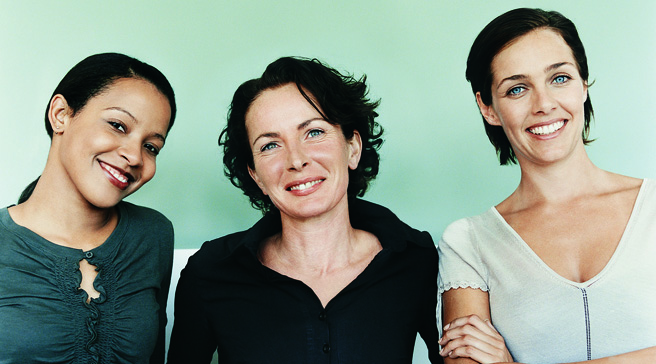Improve your social confidence
Reaching out to others can feel risky, but boosting our social confidence – new experiences, friendships or even romance – make it worthwhile, says Clare Longrigg

We all want people to like us, but for that to happen we have to improve our social confidence, let down our defences and show ourselves as we are. This takes courage. You want to be part of the social scene, yet you risk saying or doing something to attract negative attention. It’s a dilemma many people wrestle with as they prepare for a night out, while a voice in their head tells them they’d be much better off staying in.
‘You may wish to be valued, to have your contribution recognised and to feel accepted,’ says Lynne Henderson, author of Improving Social Confidence. ‘On the other hand, to display yourself sufficiently for people to get to know you can provoke anxiety. Part of learning to deal with social anxiety is learning how to cope with those risks, and facing up to setbacks if they arise.’
Dawn Breslin, writer, life coach and founder of consciouslyfemale.com, recalls: ‘I have one client who used to be absolutely terrified of speaking to people in social situations. If you meet her, she’s glamorous, she’s sociable… she doesn’t seem shy, but she’s absolutely terrified. She’s worried that people will find her dull and boring, or that she’ll get something wrong’.
Almost everyone lacks confidence in one part of their life, however successful they might be in others. ‘They might not be perceived as an underconfident person,’ says Breslin, ‘but in one area they have been avoiding or hiding themselves’.
Whether it’s public speaking or networking, going to parties or going on dates, some people manage to avoid that thing for most of their lives. ‘They come to a point,’ says Breslin, ‘where they realise they must deal with it. They get to a stage when they realise they’re missing out’.
Confidence is the power to be yourself. It brings a sense of entitlement, and makes you feel you’re making a positive contribution. It can involve recapturing a child-like openness and self-belief. We gain confidence by overcoming hurdles, by proving to ourselves that what we’ve been told about our (lack of) abilities is not necessarily true. If we don’t deal with our lack of confidence, we risk holding back in any number of different situations, and letting romance or friendship pass us by.
Many of us approach social events worrying about what might go wrong or stewing in shame about the stupid thing we said to someone last time we saw them. But if we don’t stop worrying and give the present our full attention, we miss what’s going on around us, and the people who might be looking for someone just like us.
We are drawn to some people because they have an infectious enthusiasm, and seem open to new ideas; others, because they are kind, and interested in what we might be feeling or saying. When someone is generous to us in a situation that makes us anxious, we feel calmer, explains Henderson. This same mechanism works if we show kindness to ourselves. ‘Rejection or exclusion can threaten anyone’s sense of wellbeing as much as physical threat. If we are disappointed or make a mistake and we start getting critical and angry with ourselves, that is only going to stimulate the sense of threat. If we are kind to ourselves, we feel calmer.’
Which would you rather have, a supportive voice in your head, or a bad-tempered critic? Shame makes us criticise ourselves and catastrophise the situation if something has gone wrong. Although, on the plus side, shame can make us aware if we haven’t behaved well towards others (‘How could I have left her out of that introduction? What must that have felt like?’), it can also make us feel deeply inadequate – and that it’s always our fault.
‘Whatever you’re thinking about habitually, you’ll manifest it in your life,’ says Breslin. ‘If you think, I’m a failure, you’ll continue to self-sabotage. So many people lack the self-awareness to know what they’re telling themselves every day. To make any changes, it’s vital to be aware of how devastating our negative thoughts can be. Awareness has got a lot to do with it. We’re in the habit of
questioning ourselves and judging ourselves all the time. Building confidence is about self-love and self-acceptance.’
More inspiration:
Read Don't hug a tree by Jane C. Woods on LifeLabs for more on unhelpful and helpful thinking
READER OFFER: We have teamed up with WHSmith to give you Psychologies' wonderful new book at a fantastic price. Pick up your copy of Real Confidence at WHSmith rail, airport and hospital stores for £4.99 from 18-24 February. Subject to availability.








